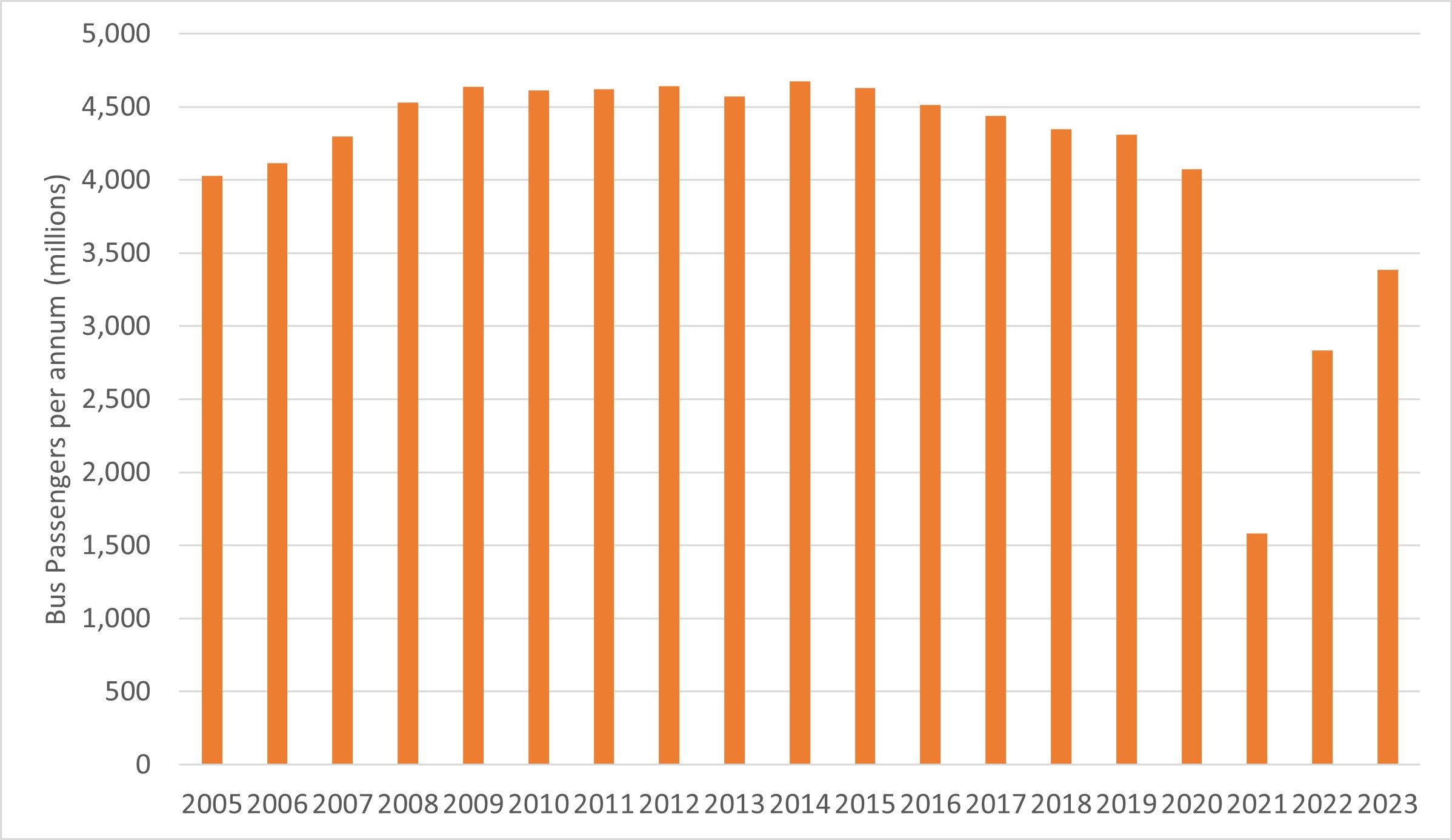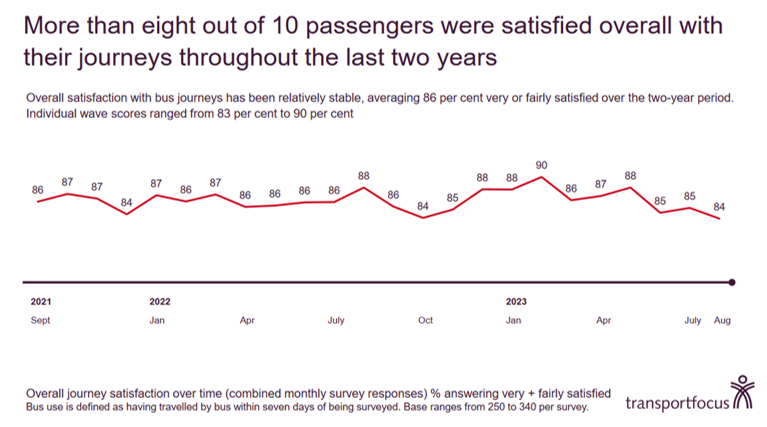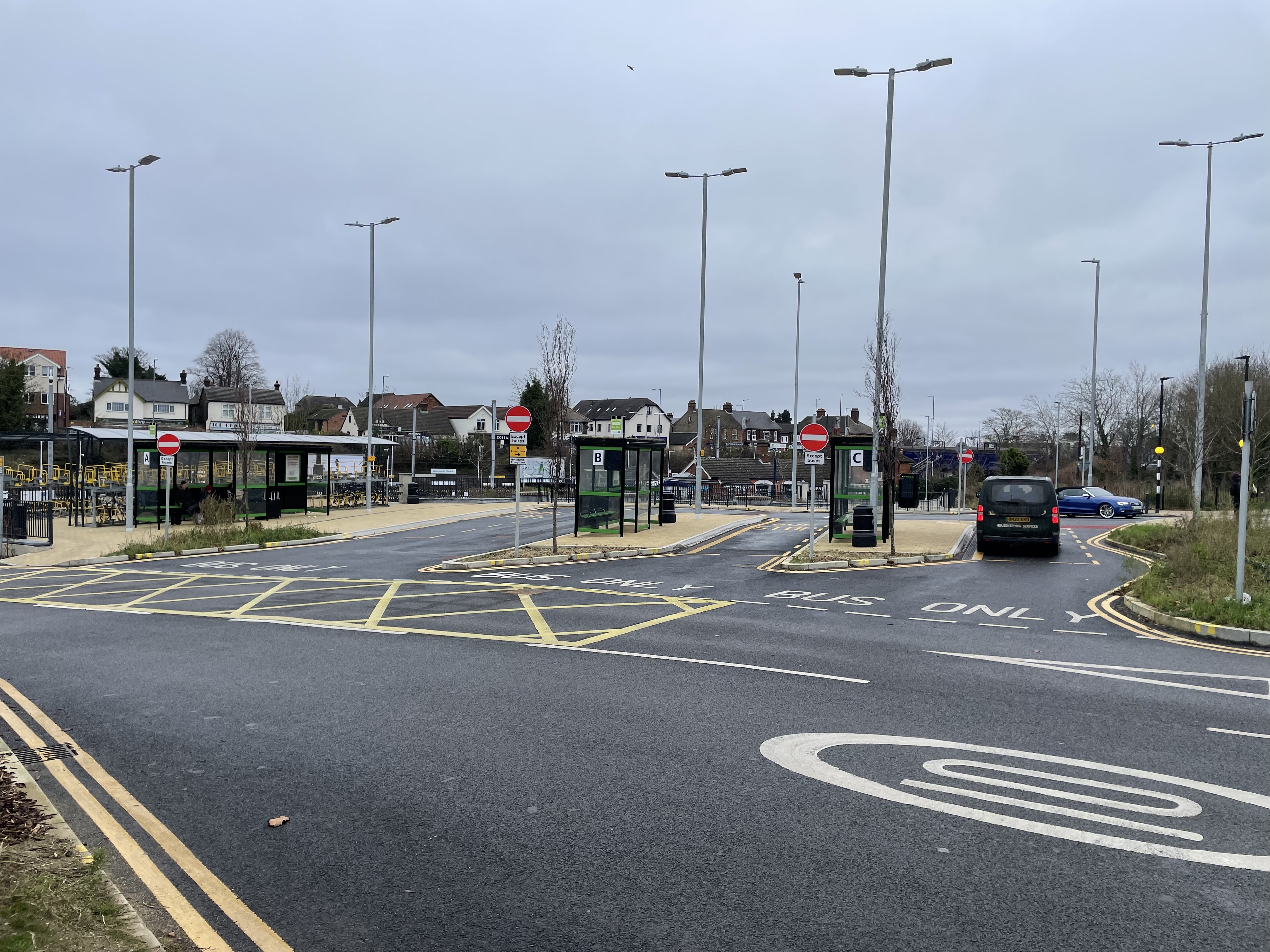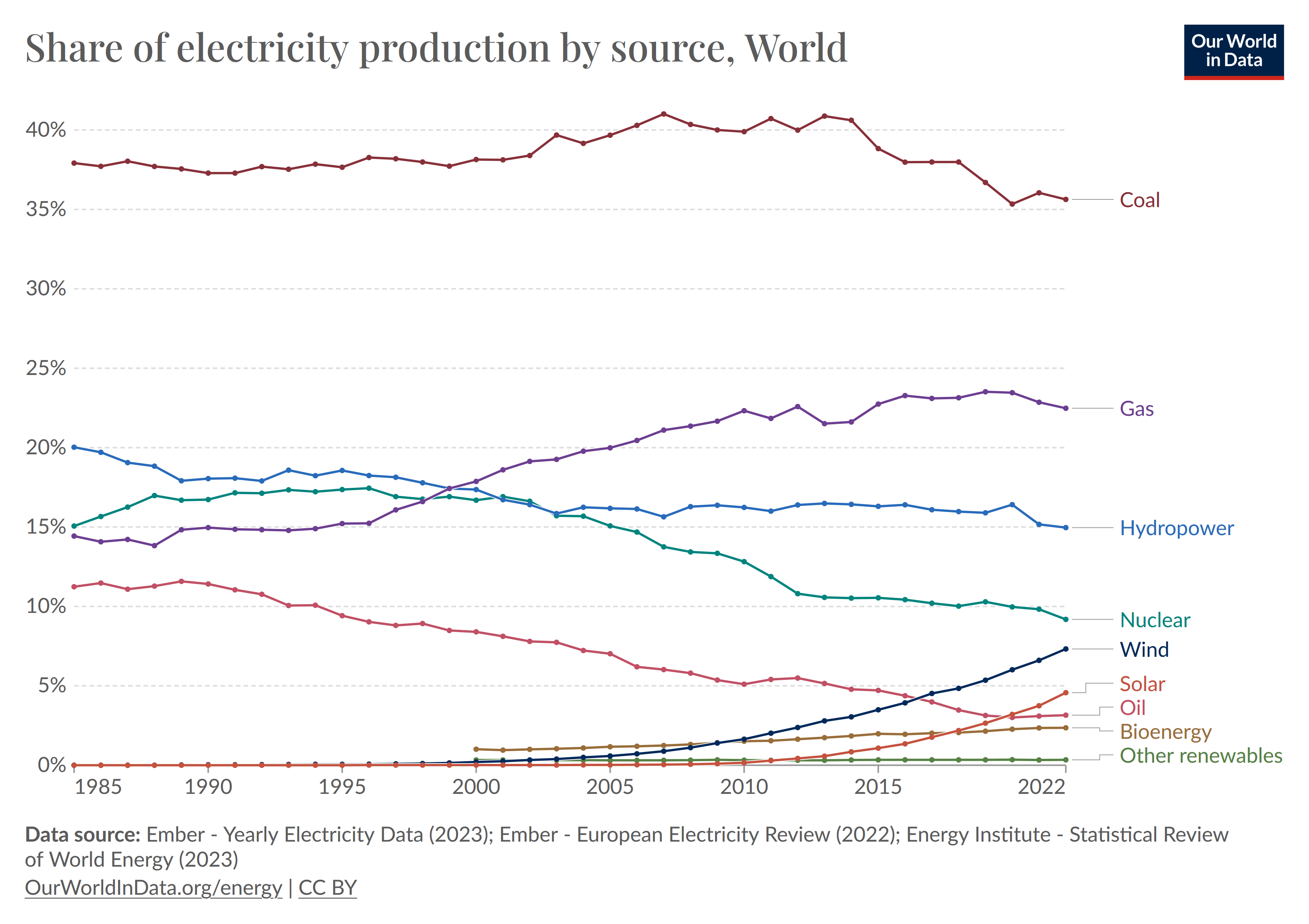Good day my good friend.
Driving a car has a somewhat strange experience on me. Every Sunday morning, me and my wife drive somewhere that isn’t our local fields or woods to take our dogs for a ‘special’ walk. This time, I had the experience which I will term as collective annoyance.
This is where other drivers do things that on their own are not worthy of rage, but collectively put you in a bad mood. This included driving at 35mph in a 30mph zone, constantly slowing as though to turn and not turning, and constantly drifting over the centre line for who knows what reason.
Its this kind of thing that makes me hate driving a car, and why I try to avoid it whenever I can.
If you like this newsletter, please share it with someone else who you think will love it. The main way my audience grows is through your recommendations. I will love you forever if you do. 😍
James Gleave
🚌 UK bus policy isn’t working
Three years, and two Prime Ministers, ago, the British government adopted its national bus strategy – Bus Back Better. And it had a strong vision for what buses would be like in England:
To achieve our goal, this strategy will make buses more frequent, more reliable, easier to understand and use, better co-ordinated and cheaper: in other words, more like London’s, where these type of improvements dramatically increased passenger numbers, reduced congestion, carbon and pollution, helped the disadvantaged and got motorists out of their cars.
It is tough to judge any strategy just 3 years after it has come into being. Especially since the funding provided (Bus Service Improvement Plan, or BSIP) and the key requirements (established at least Enhanced Partnerships for buses everywhere) have not bedded in for long.
But the early signs are not good. The annual number of bus passengers across England was still below pre-COVID levels, despite showing a recovery from COVID.

Source: Department for Transport
Buses are now also less reliable compared to what they were before COVID-19. Though there is some significant regional variations, nationally buses are now at a level of reliability last seen in 2010.

Source: Department for Transport
To put the nail in things, the amount of miles run by local buses in England (a proxy for both number of routes and frequency of services) has also continued to decline. This decline has been experienced across both commercial and supported bus services.

Source: Department for Transport
The one slight bright spot is that the proportion of bus users who are satisfied with local bus services hasn’t got any worse, averaging in the mid-80%. At least according to the Bus User Survey undertaken by Transport Focus.

Source: National Bus User Survey
Lets be honest about this. This isn’t working, is it? Whatever way we cut it, bus policy in the UK is not working. There are fewer buses running, there are fewer people using buses, and those that do run are less reliable.
There are pockets of good things happening. Oxfordshire is one. Nottingham has always done well with local buses. Then there is Manchester experimenting with franchising of course. And there are plenty of passionate, committed people trying to do their best to get more people on local buses. But despite this, we are failing.
Last Friday, I shared a perfect example of this failure at my local station in Flitwick. A new bus interchange has just been opened at the station, after a 9 month delay to sort out snagging issues, and at a cost of £4.8 million.

Now, what is being planned is not an improvement to local bus services, but a reduction. Stagecoach Bedford are about to remove their commercially-operated service, the number 2 bus that serves some the residential areas in Flitwick, then head to Ampthill and then Bedford. Central Bedfordshire Council are also consulting on proposals to remove the hourly bus to Harlington and Toddington, reduce the hourly bus to Milton Keynes, and remove the bus to Maulden, Shefford, and Biggleswade. Only another hourly bus to Ampthill and Bedford (run by Grant Palmer) will remain.
To say that I am frustrated is an understatement. This is one of countless examples of failure. A failure to join up thinking, to join up delivery, to commit to even the basics of integrated transport, and committing to buses beyond the end of the financial year.
We are now at a stage in the UK where we are beyond tweaks. We are beyond commitments to work in partnership, or throwing money at the problem. Saving old routes and trialling new services within the existing structures will not work, or its impact will be limited. I’m not even sure politicians being brave and supporting bus priority or investing more taxpayer money into buses at the expense of the motorists will help.
I am not sure whether something like bus franchising will work. Mainly because we have no evidence yet from Manchester, and the example of London is not really applicable anywhere. My only thought is that it is worth trying because it gives local accountability over any failures, and it can’t be much worse than what we have already.
More than anything though, is we need to radically reframe how we approach delivering public buses. Since deregulation in 1985, what has been at the core of the operation of local bus services is the profit motive. But buses are a public service, without public control over them. They are spoken of by people as a public service.
So we need to change the narrative amongst ourselves as professionals. We need to say to ourselves that buses are public services. And maybe we need to figure out how to run them as such.
What you can do: This is something where we need to start talking between ourselves first. At your next team meeting, start a conversation – what are bus services for? And do the incentives in the current set up of buses reflect that? Finally, what is in our power to change things for the better now?
👩🎓 From academia
The clever clogs at our universities have published the following excellent research. Where you are unable to access the research, email the author – they may give you a copy of the research paper for free.
TL:DR – Students in different parts of a mountain city in China walk and cycle to different degrees. The recommendation is better school buses and a better active travel environment.
The importance of recurring public transport delays for accessibility and mode choice
TL:DR – Actual accessibility of public transport varies significantly than that of the timetable, and frequent delays results in less people using public transport.
Framing active school travel in Ontario, or how spinach is good for you
TL:DR – Challenging the status quo involves framing active travel in a way that’s strong to the finich (cause I eats me spinach).
TL:DR – Issues with disabled access are universal!
✊ Awesome people doing awesome things
Its amazing to see people go above and beyond to make things better for anyone who travels. And that describes Nottingham bus driver David Townsend. Not many drivers help people on and off the bus with their bags, and apparently that is just a normal day for him. Be more like David!
📺 On the (You)Tube
This video is about the seventy billionth I have seen on why American suburbs are bad. But it does contain one or two ideas on how we can do something about it (hint: its hard to change the urban fabric, but there are some things we can do).
🖼 Graphic Design

Source: Our World In Data
This graph on how energy is generated is slightly depressing and very encouraging. Its depressing in that fossil fuels still dominate our energy mix. But the proportion of the energy mix it has has either flatlined or declined for 10 years, and renewables are fast increasing.
📚 Random things
These links are meant to make you think about the things that affect our world in transport, and not just think about transport itself. I hope that you enjoy them.
- These Entrancing Maps Capture Where the World’s Rivers Go (Smithsonian Magazine)
- Why Humans Are Putting a Bunch of ‘Coal’ and ‘Oil’ Back in the Ground (Wired)
- The Debt Explosion: How Neoliberalism Fuels Debt Crises (Naked Capitalism)
- Huge ring of galaxies challenges thinking on cosmos (BBC)
- Why We Love/Hate Brutalist Architecture (JSTOR Daily)
📰 The bottom of the news
There is a lot of talk of places losing local bus services. Less about people being amazing and setting up their own. That is what happened with the Cellan and Llanfair Community Bus. They have faced every barrier possible, and overcome them, including needing to fundraise £500 before Christmas. Good on them!
👍 Your feedback is essential
I want to make the calls to actions better. To do this, I need your feedback. Just fill in the 3 question survey form by clicking on the below button to provide me with quick feedback, that I can put into action. Thank you so much.





One response to “❌ Policy Failure”
[…] UK bus policy isn’t working (Mobility […]
LikeLike